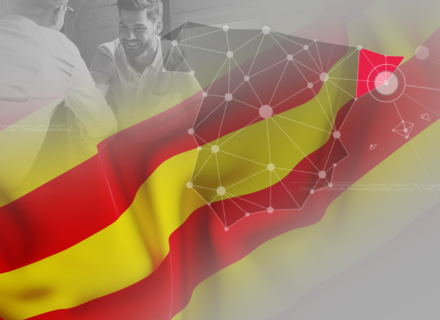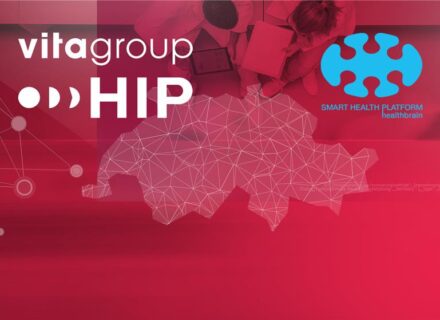How open platforms help research
Fragmented, non-standardised healthcare data slows research, drives up costs, and limits collaboration across institutions. Open platforms bring structure and interoperability, making it possible to harness data at scale for faster, more impactful medical breakthroughs.

Every meaningful advance in healthcare research builds on the foundations of shared knowledge and data. Yet data fragmentation remains a persistent challenge: in Europe, between €3-5 billion is wasted annually in research due to data silos and lack of interoperability between health systems, according to the European Research Area (ERA).
When data doesn’t align
To understand the root cause of these challenges, let’s look at how non-interoperable data impacts research in practice. Take diabetes-related data as an example. Blood glucose measurements, one of the parameters for diabetes studies, are often stored inconsistently across healthcare providers:
- Hospital A uses different names for blood glucose across departments – like BloodSugar or BG_Level – without a consistent code or format, making it hard to combine the data automatically.
- Hospital B uses equiring manual conversion.
- Hospital C employs coded data but uses internal, non-standard identifiers such as, for example, BG_001, which are not aligned with international standards.
Such variations in data recordings are not only taking place between hospitals but also within a single hospital. When data is coded in such different ways, it only works inside a given hospital’s database and cannot be used by researchers outright to be compared to datasets from other systems or hospitals. So, when researchers want to access and use data on blood glucose levels from multiple hospitals, they face several challenges:
- They must invest a lot of time and resources in cleaning and standardising the data to make it compatible and used effectively. This labour-intensive process takes time and consequently drives up study costs.
- Data is often “cleaned up” manually, which increases the risk of errors or misinterpretation, potentially compromising the reliability and reproducibility of research findings.
- Large-scale health studies require data from multiple institution or even countries to identify trends, assess treatment effectiveness, and develop new therapies. Discrepancies in data recordings in health systems make this a slow and complex process, delaying collaborations and reducing the statistical power of studies.
A unified approach to research data
For research to be effective and cost-efficient, it requires seamless access to structured data across different healthcare organisations and healthcare settings – which is where open platforms provide a critical foundation. They ensure that healthcare data is stored independently of the system that created it, it is structured and stored centrally and is available in real-time.
This offers several benefits for research:
- Open platforms eliminate the need for data mappings, making it easier and faster to combine and study and researchers can trust that they are comparing similar information
- Having data readily available also accelerates research time, reducing costs and leading to quicker discoveries and improvements in healthcare
- Errors that took place during manual data cleaning are also eliminated due to readily available compatible data formats
- Research is not confined to isolated datasets but can be expanded across platforms, regions, and countries, enabling bigger, more diverse
- Open platforms enable access to real-world data, allowing researchers to understand what works, rather than relying on controlled trial settings.
Open platforms in action
At the University Medicine Bochum, the Medical Faculty and University Hospital of Ruhr University Bochum (UK RUB) has adopted an open platform approach to enable seamless research collaboration across its eight university hospital organisations l and to establish a central point for data provision to the medical informatics initiative (Medizininformatik-Initiative, MII).
With approximately 800,000 patients per year, the University Medicine Bochum research infrastructure will consolidate vast amounts of clinical pseudonymised data into a standardised, interoperable system, ensuring that researchers at the UK RUB, as well as researchers at MII, have efficient access to high-quality data sets.
Each hospital within University Medicine Bochum retains control over its local data management system while contributing pseudonymised research data to one central instance.
With an initial focus on the basic modules of the core data set of the Medical Informatics Initiative (MII), University Medicine Bochum’s open platform project lays the groundwork for large-scale, data-driven studies – ultimately accelerating medical research and, in the long term, improving patient outcomes.
Faster medical research and better treatment outcomes for patients
Much like the University Medicine Bochum example, the Central Institute for Mental Health in Mannheim, Germany, is developing an innovative research IT platform (FIT) to improve data-driven research in mental health and psychiatric disorders. At the core of the FIT platform is vitagroup’s HIP, which stores and provides data from the institution’s various IT systems of the institution in a centralised and standardised manner, thereby ensuring structured storage and interoperability:
- ORBIS (Dedalus): Supplies structured clinical data, including diagnoses, medications, and treatment history.
- REDCap: Captures structured research data, such as questionnaire responses and clinical trial information.
- Laboratory Databases: Provide biochemical, genetic, and diagnostic test results relevant to mental health studies.
With all the data from the above systems harmonised and stored centrally enabled by HIP, researchers can efficiently query patient datasets, define study parameters, and access high-quality clinical information without compromising patient confidentiality. The platform also automates consent management, simplifying approvals for research requests.
With open platforms bridging the gap between fragmented data sources, healthcare research can become more efficient, scalable, and connected – ultimately transforming the way we understand and treat diseases.



